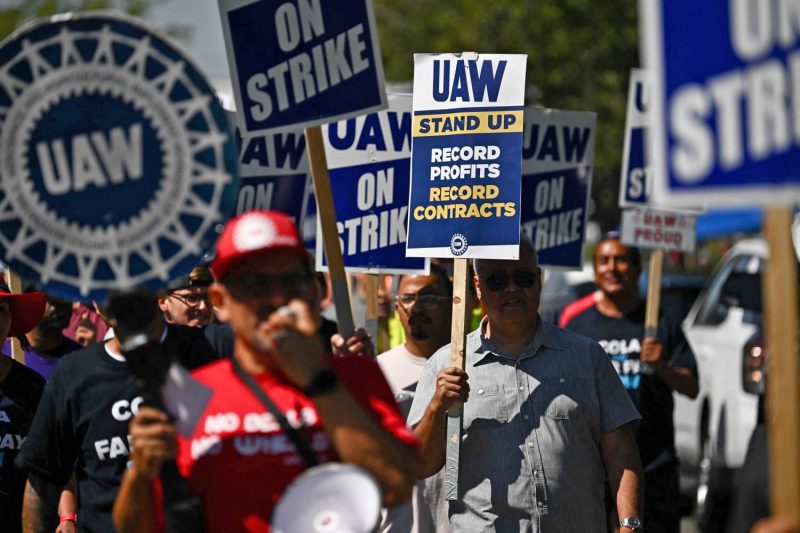
Stellantis CEO Faces Mounting Criticism from UAW and U.S. Dealers Amid Cuts and Sales Slump
The recent decision by Stellantis CEO, Carlos Tavares, to make significant cuts in production and reduce vehicle inventory quotas has sparked controversy and dismay among U.S. dealers associated with the United Auto Workers (UAW). The move comes as the auto industry faces challenges due to the global semiconductor shortage and mounting pressure to shift towards electric vehicles.
One of the major criticisms from U.S. dealers is the impact of Stellantis’ decision on sales and profitability. By reducing production and inventory quotas, many dealers are concerned that they will not have enough vehicles to meet customer demand, thus resulting in lower sales and potential revenue losses. Some dealers have also raised concerns about the lack of communication and transparency from Stellantis regarding the decision-making process and its implications for their businesses.
Moreover, the cuts in production have raised questions about the long-term strategy and vision of Stellantis under CEO Carlos Tavares. While the company has emphasized the need to adapt to the changing landscape of the auto industry, some dealers feel that the drastic measures taken by Tavares may have negative consequences for their businesses in the short and long term. This has led to increasing tensions between U.S. dealers and Stellantis management, with calls for greater collaboration and dialogue to address the challenges facing the industry.
Additionally, the global semiconductor shortage has exacerbated the situation for both automakers and dealers. The lack of supply of essential components has further constrained production capacities, leading to delays in vehicle deliveries and affecting customer satisfaction. The semiconductor shortage has forced automakers to prioritize certain vehicle models over others, potentially impacting the sales and profitability of dealers who rely on a diverse range of vehicles to meet customer preferences.
In response to the criticism and concerns raised by U.S. dealers, Stellantis has stated that the production cuts are necessary to manage inventories and adjust to the changing market dynamics. The company has committed to working closely with dealers to address their needs and concerns, while also exploring alternative strategies to mitigate the impact of the semiconductor shortage on production.
Overall, the criticism from U.S. dealers towards Stellantis CEO Carlos Tavares reflects the challenges and uncertainties facing the auto industry in the current economic environment. As automakers navigate the complexities of supply chain disruptions, changing consumer preferences, and technological advancements, collaboration and communication between manufacturers and dealers will be essential to ensuring the sustained growth and profitability of the industry.
